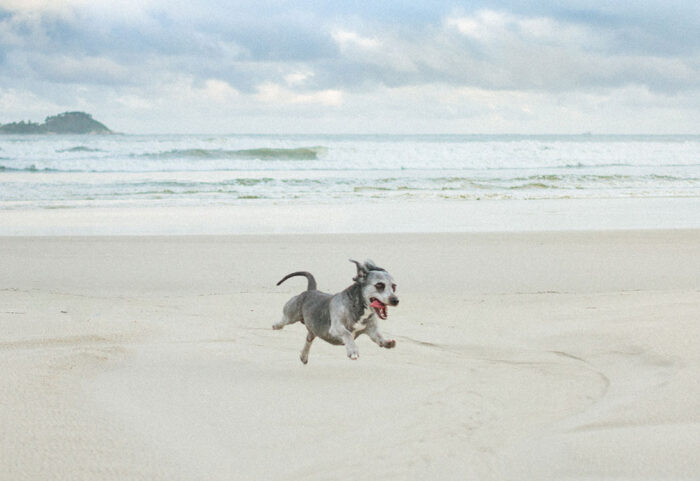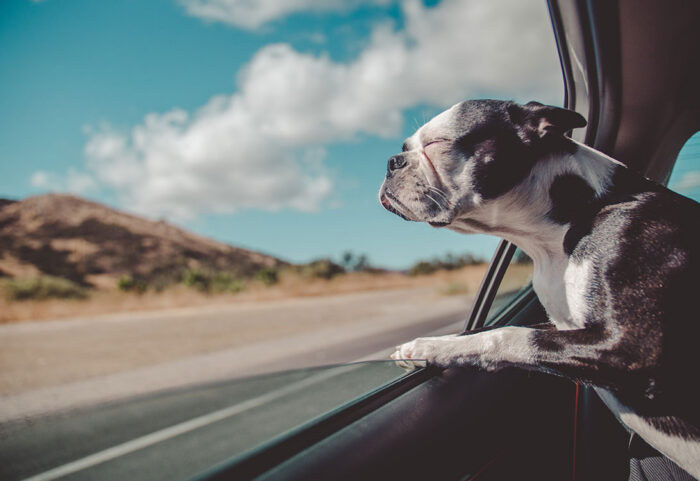So You Got a Puppy…What Now?
Welcoming a new puppy into your home is always exciting…and usually pretty overwhelming! For your family, it’s a time of huge adjustments. For the puppy, it’s a transitional period when they learn to live in a new environment away from their mother and littermates.
Your goal as a puppy parent is to make this phase as stress-free for your new pup as possible. Let’s talk about how to do that.
Joining the “Group”
Dogs are, of course, pack animals. The younger your puppy is, the more readily they’ll bond with you and the rest of your family members as they seek to establish a new “pack.” Having another dog in the home can actually make this transition easier as the puppy will immediately recognize it as one of its own.
During the crucial first weeks in your home, your puppy will be testing its limits within the pack. It’s important to set strong boundaries for the puppy during this period around behavior, space, and relationships, as they’ll form the foundation for training later on. The more inappropriate behaviors you allow from your puppy early on, the more difficult they’ll be to correct in the months and years to come.
As you work to set these boundaries, remember that the best way to establish control is not through punishment or fear; it’s by redirecting your puppy to more appropriate behaviors.
Training Your Puppy
Although many professional trainers and facilities won’t accept puppies younger than around 6 months old, the best time to begin training your pup is as soon as you bring them home. The earlier you can establish yourself as the leader of the pack, the better.
Your own attitude and responses to your puppy will have a huge affect on how well they take to training and how well-mannered they eventually become.
Training Without Physicality
Training your puppy should always focus on getting what you want from the puppy, not disciplining what you don’t want. That’s why most vets don’t recommend overly physical training techniques, such as scruff shakes or rollover techniques. Dogs don’t communicate this way with each other in nature!
Rewards-Based Training
Rewards-based training is much more effective at getting your puppy to be responsive and subordinate. You want your dog to enjoy being trained and handled, not dread it.
Teach your puppy that rewards (treats, playtime, or belly rubs, depending on what’s most motivating) must be earned. Start with a few simple commands such as “sit” and “stay” and practice a 10-minute session or two each day, rewarding your dog when they achieve your desired result.
Conversely, decline to reward your dog anytime they do anything you dislike, such as nipping or barking. Inattention to these behaviors (rather than a harsh correction) is best; confine your puppy for a few minutes if need-be for them to calm down. Be sure everyone in the household is on the same page regarding when to reward and when to ignore!
Here are a few more useful articles regarding puppy behavior:
How to Make Your Puppy Behave
Puppies get into mischief…it’s just what they do! They’re learning the world around them and it’s your job to teach them right from wrong. The very best thing you can do to keep your puppy’s behavior in check is to establish a routine. Dogs thrive on predictability.
Encouraging Good Behavior
Your routine should include plenty (plenty) of exercise each day. Ideally, this exercise will come in the form of both walks and playtime. A bored, restless puppy is most likely to get into trouble.
Set your puppy up for success by always supervising its behavior while you’re around, and crate training when you’re not. A 6-10 foot retractable leash is the best choice for walks, and your vet can help you determine which crate size is best. Remember that your puppy’s crate shouldn’t be sequestered; keeping it in the kitchen or near where people congregate is best. Don’t forget to exercise your puppy and allow them to eliminate before putting them in their crate!
Also remember to provide your puppy with plenty of objects and toys they’re allowed to play with. Puppies naturally love to chew on things, so be sure they’ve got plenty of stuff they’re allowed to be destructive with.
Should I Punish?
It’s best to avoid punishing a puppy for “bad” behavior (i.e. rubbing their nose into an accident on the carpet) because it’s simply not effective. Punishment could actually lead to your puppy avoiding members of the family instead of correcting the offending behavior.
If you must get your puppy’s attention while they’re misbehaving, a loud “no!” or even a clap is usually enough to do the trick. The point is redirection, not reprimand. It’s never, ever effective to correct a behavior after the fact – you should aim to redirect your puppy while they’re misbehaving.


